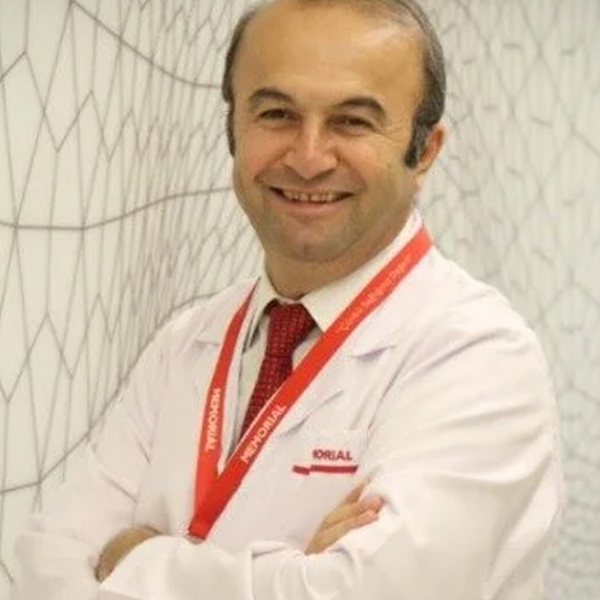Top Doctors in the World for Tri-focal Lens Surgery (Cataract) are:
.png)
.png)

If you're interested in getting a free quote, submit a request via this link. Take the first step towards a healthier future today!
Tri-focal lens surgery is a revolutionary procedure used to treat cataracts and correct presbyopia. Unlike traditional monofocal lenses, which provide clear vision at a single distance, tri-focal lenses offer a broader range of focus, enabling clear vision at near, intermediate, and far distances. This advanced technology has become a preferred choice for patients seeking to restore their vision and reduce their dependence on glasses or contact lenses.
How Does it Work?
Tri-focal lenses are designed with multiple focal points, allowing the eye to focus on objects at various distances. The lens has distinct zones that correspond to near, intermediate, and distance vision. This design mimics the natural focusing ability of a healthy eye, providing a more natural visual experience for patients. The lenses are typically made from high-quality materials that are biocompatible and long-lasting.
Symptoms of Cataracts
Cataracts are a common eye condition characterized by the clouding of the eye's natural lens. This condition can lead to:
- Blurry or cloudy vision
- Difficulty seeing at night
- Sensitivity to light and glare
- Fading or yellowing of colors
- Double vision in one eye
- Frequent changes in prescription glasses or contact lenses
These symptoms can significantly impact daily life, making activities such as reading, driving, and recognizing faces challenging. If left untreated, cataracts can lead to complete vision loss.
The Procedure: What to Expect
Pre-operative Assessment
Before undergoing tri-focal lens surgery, patients undergo a thorough eye examination. This assessment includes measuring the size and shape of the eye, evaluating the health of the retina, and determining the extent of cataract development. The surgeon will discuss the patient's visual needs and expectations, ensuring the chosen lens is suitable for their lifestyle.
The Surgical Process
The procedure itself is typically performed on an outpatient basis and takes about 15-30 minutes per eye. It involves the following steps:
- Anesthesia: Local anesthesia is administered to numb the eye, ensuring a painless experience.
- Incision: A small incision is made in the cornea to access the natural lens.
- Lens Removal: The clouded natural lens is emulsified using ultrasonic energy and gently removed from the eye.
- Lens Implantation: The tri-focal lens is inserted into the eye, replacing the natural lens.
Recovery and Aftercare
Post-surgery, patients are monitored for a short period before being discharged. Recovery is typically quick, with most patients experiencing improved vision within a few days. However, complete healing may take several weeks. During this time, patients are advised to:
- Avoid strenuous activities
- Follow prescribed eye drops to prevent infection and reduce inflammation
- Protect the eyes from bright light and potential trauma
Patients should attend all follow-up appointments to monitor the healing process and address any concerns.
Benefits of Tri-focal Lens Surgery
Enhanced Vision
The primary benefit of tri-focal lens surgery is the restoration of clear vision at multiple distances. This comprehensive visual range significantly reduces the need for glasses or contact lenses, offering greater convenience and freedom.
Improved Quality of Life
Restoring vision can dramatically improve the quality of life. Patients often report greater ease in performing daily activities, increased confidence, and a renewed sense of independence. The ability to see clearly at all distances can enhance social interactions and overall well-being.
Long-term Solution
Tri-focal lenses are designed to be a long-term solution for vision correction. They are durable and resistant to degradation, providing consistent visual performance for many years. This longevity makes tri-focal lens surgery a valuable investment in one's eye health.
Choosing the Best Doctors for Tri-focal Lens Surgery
Selecting the right doctor is crucial for a successful outcome. When seeking a surgeon, consider the following factors:
Experience and Expertise
Look for doctors with extensive experience in performing tri-focal lens surgery. An experienced surgeon will have a deep understanding of the procedure, potential complications, and the latest advancements in lens technology.
Patient Reviews and Testimonials
Patient reviews and testimonials can provide valuable insights into a doctor's skills and patient care. Positive feedback and high satisfaction rates are good indicators of a doctor's proficiency and bedside manner.
Technology and Facilities
Ensure the clinic or hospital uses state-of-the-art technology and adheres to the highest standards of hygiene and safety. Advanced equipment and techniques can enhance the precision of the surgery and reduce the risk of complications.
Personalized Care
A good doctor will take the time to understand your unique visual needs and expectations. They should provide personalized recommendations and be transparent about the risks and benefits of the procedure.
To conclude, Tri-focal lens surgery is a highly effective solution for cataract treatment and vision correction. By offering clear vision at multiple distances, it can greatly improve the quality of life for patients. However, the success of the procedure largely depends on the expertise of the doctor and the quality of care provided. For those considering this surgery, thorough research and careful selection of a qualified surgeon are essential steps toward achieving the best possible outcome.






.png)

